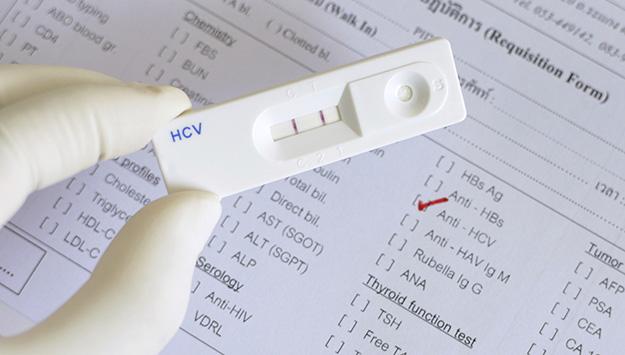During a televised speech on August 5, 2014, President Abdul-Fattah el-Sisi announced a “surprise” he'd planned for the Egyptian people: the launch of the New Suez Canal mega-project, involving an expansion of the existing canal and the development of its environs into a global trade hub. The project is making waves in Egypt and worldwide, mobilizing equipment, contracts, and finance. But the plan to widen and deepen the existing canal to permit passage to the world’s largest container ships and to dig a parallel waterway to allow for two-way traffic was not new. Initiated by Anwar Sadat’s administration, it was placed on the table twice by Hosni Mubarak but dismissed for lack of funds.[1]
President Mohamed Morsi also tried to revive the project, but his proposal included provisions for Gulf investors to purchase Canal Zone land; this became a source of tension with the military, which feared that the Muslim Brotherhood would encourage its friends in the Gulf to own strategic real estate along the Suez Canal. Indeed, this issue might have hastened Morsi’s replacement by former Army General Sisi. The new project under Sisi does not allow for foreign purchase of Suez Canal property. The Suez Canal Authority, a sensitive national concern, is traditionally headed by a member of the military. The army, which is responsible for Canal Zone security, is the primary contractor for the project and will undertake a portion of the work. Contracts for several aspects of the Canal Zone development were already being tendered in 2013.[2]
MORE:
- The Middle East in 2015 and Beyond: Trends and Drivers
- Egypt’s Suez Canal Corridor Project: ‘Mega Project of the Century’
Sisi’s real surprise was to shorten the deadline for completing the canal expansion from the originally projected three years to one year. A two-way canal will cut transit times from an average eleven to three hours, increase the number of ships able to navigate it simultaneously from 23 to 97, and—the state claims—more than double the annual $5 billion canal revenue to $13.5 billion by 2023. Along with tourism, the canal is one of Egypt’s top foreign currency generators.[3]
The decision to build the parallel waterway just 400-600 meters from the existing one makes sense from a security standpoint, but it will be harder to dig owing to seepage. “Wet dredging” is a costlier process than dry digging. Although the work was originally meant to be performed by Egyptian companies and the army, Egypt lacks sufficient equipment to move 250 million cubic meters of mostly mud in so short a time. Six foreign firms were contracted in October 2014 to deliver 36 dredging machines from the United States, Holland, and Belgium, and are now at work. “I think we were all surprised at how fast this was tendered and how fast it will be executed,” remarked Pierre Catteau of Belgium’s DEME Group. [4]
It was another surprise when Sisi announced on September 1 that the Egyptian public would be invited to participate in the project via tax-free investment certificates offered by state-owned banks in denominations as low as 10 Egyptian pounds. The certificates sold out, generating $8 billion, the bulk of the canal expansion cost, in just eight days. The enthusiastic response was interpreted by some commentators as the public’s endorsement of Egypt’s new leadership. Others pointed out that the certificates’ 12 percent interest rate was higher than the banks’ nine percent. As an additional incentive, citizens purchasing certificates amounting to 1,000 Egyptian pounds or more could collect their interest quarterly instead of annually.
Asked if it was worth the trip to the bank for the quarterly interest of 30 Egyptian pounds on 1,000 pounds, a young woman working as a coiffeur said, “Of course! This is free money from the government. People will take whatever they can get and kiss the hands that gave it.” According to an Egyptian Center for Public Research poll, around 42 percent of those who bought certificates did so with “untapped savings,” meaning money they had stashed beneath the mattress owing to a deep distrust of state-owned banks.[5] A 73-year-old tailor from Ismailia who invested 10,000 pounds from his meager savings said that though he had been disappointed with the government since the 1952 revolution that placed the military in power, “I believe in Egypt. I grew up beside the canal.”[6]
Continue reading this article at the Middle East Institute. Republished with permission from the Middle East Institute.
____________________
Notes:
[1] “Sisi in Ismailia to Inaugurate Multi-bln Dollar Investment Project,” Mada Masr, Aug. 4, 2014.
[2] Daria Solovieva, “Suez Canal: Egyptian Military Takes Charge of Economic Development,” International Business Times, April 3, 2014.
[3] Isabel Esterman and Amira Salah Ahmed, “Crowd-funding the Canal?,” Mada Masr, Aug. 5, 2014.
[4] “Egypt Signs with Six International Firms to Dredge New Suez Canal,” Reuters, Oct. 19, 2014.
[5] Poll results published Sept. 29, 2014.
[6] Author’s conversations, Nov. 30, 2014.
____________________
Maria Golia, an American writer, has lived in downtown Cairo for over two decades. She is the author of “Cairo, City of Sand“ and ”Photography and Egypt“ (Reaktion Books, UK, 2004, 2010), non-fiction works involving extensive historical research alongside an intimate understanding of the country’s present moment. Long-time columnist for the Lebanon Daily Star and the New Internationalist (Oxford), she contributes political and social commentary to a variety of publications. Her work aims to illustrate both the contrasts between Egyptian and other societies and the motivations that seem to drive us all.
*Image of “Suez Canal“ via Shutterstock


